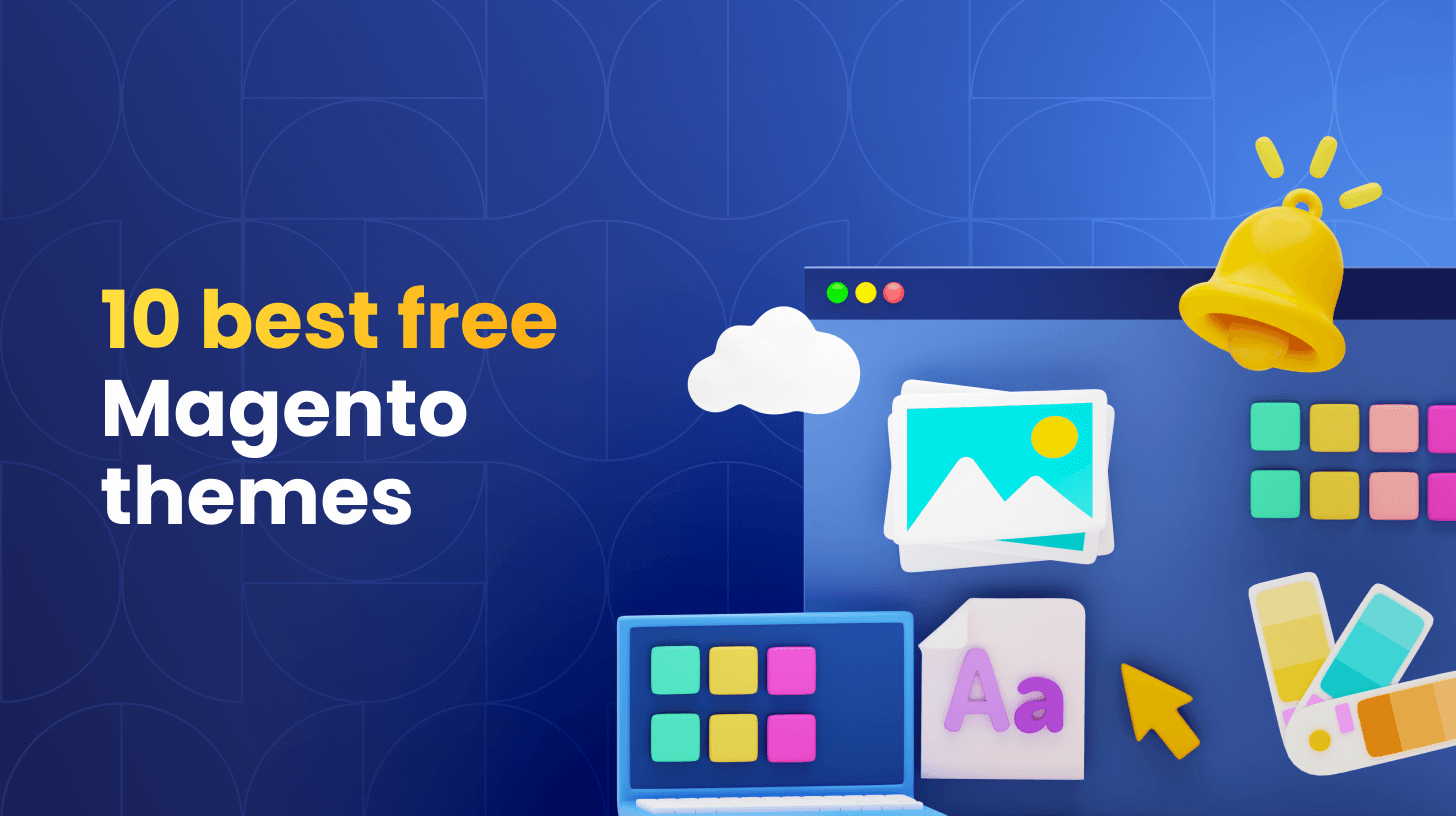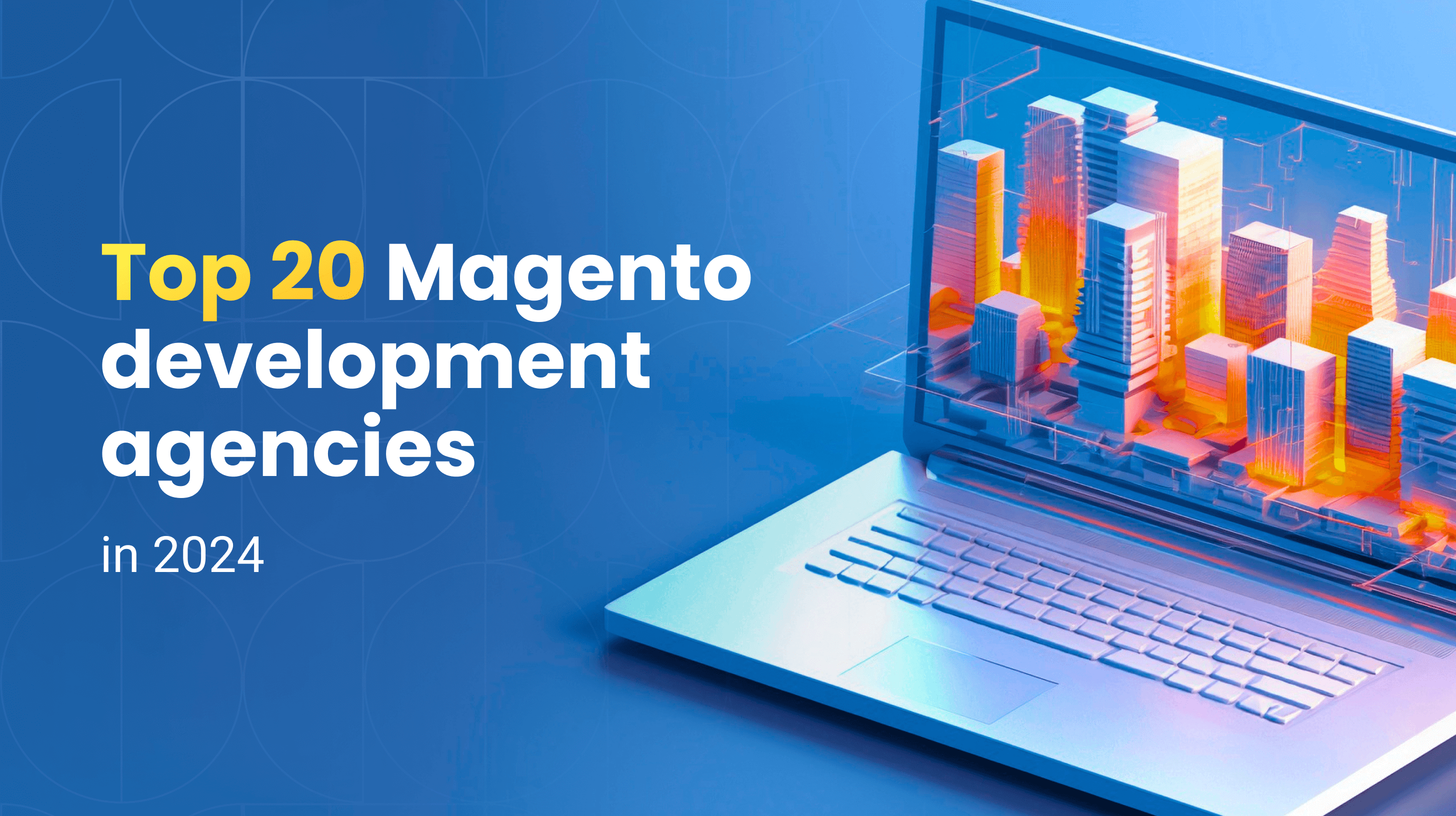0%

In This Article:
What is B2B E-commerce Development?
Streamlining Operations with E-commerce
Untangling B2B Processes
The Power of Composable Commerce
All In on SaaS: The Extensible Advantage
Knowing Your Starting Point Through E-commerce Maturity
The Generative AI Question (And Answer)
Catering To B2B Payment Needs
Real-Time Data is a Must
Automation To Streamline Operations
Omnichannel Experiences
Training a sales team to sell to B2B companies, in contrast to B2C sales, has always been a different story. Gone are the days when these were two distinct processes, the lines are blurring every day.
B2B companies expect the same level of explanation and quality as treating their best customers. As the lines between industries continue to blur, they will expect a higher level of customer service, excellence, flexibility, and other options.
Customer centricity should be at the forefront of the sales cycle, which has been emphasized in the modern B2B environment.
Join us as we explore the top ten B2B e-commerce trends and how you can take your B2B e-commerce platform and sales channels to the next level.
What is B2B E-commerce Development?
B2B e-commerce development refers to creating and implementing online platforms specifically for B2B transactions. This is your storefront on a digital and global scale.
What drives B2B marketplaces apart is that your e-commerce platform should be catering to other businesses rather than individual consumers.
According to Digital Commerce 360, U.S. e-commerce sales staggeringly grew to about $1.119 trillion in 2023 from $1.040 trillion in 2022, representing a 7.6% growth.
Let's dive into the top ten trends surrounding B2B e-commerce.
1. Streamlining Operations with E-commerce
Gone are the days of time-consuming manual processes. B2B e-commerce platforms do many different things that would have taken a larger workforce or more time to complete.
With a dedicated e-commerce platform, you can automate tasks, reduce bounce rates, free up time for your team, streamline workflows, and improve overall business performance.
Consider the cost-per-lead (CPL) – acquiring new customers online is often significantly cheaper than traditional offline methods.
When pricing your CPL, remember to also consider your client's average lifetime value. For B2B sales, this is often higher, as businesses will prefer to stay with a high-value supplier or partner to avoid the hassle of inconsistent products, services, or revenue.
A robust e-commerce platform can answer routine customer inquiries, freeing your sales team to focus on high-value interactions.
2. Untangling B2B Processes
Configure, Price, Quote (CPQ) systems are quickly becoming a huge boon for businesses dealing with intricate, difficult, or delicate transactions involving product variations and custom configurations.
You've probably noticed, even anecdotally, that all customers in the B2B space would prefer to have a custom solution or a tailored illustration demonstrating how your product or solution can help them.
Doing this at scale just got a lot easier – and now it's simpler to exceed customer expectations.
These intelligent systems streamline pricing structures and automate the quoting process, giving you increased accuracy and efficiency.
Headless commerce is one such change, as it decouples the back end from the front end – allowing you to make changes independently of the other and focus on delivering a great customer experience without getting bogged down with technical issues.
3. The Power of Composable Commerce
What is composable commerce? Imagine a toolbox filled with best-in-class commerce components. That's the essence of composable commerce, a fantastic approach allowing you to build a customized e-commerce platform with modular elements.
The key part is the flexibility that it grants you. With increased flexibility over your elements, you can choose the functionalities that perfectly match your business needs, fostering growth and future scalability.
Think of it as picking and choosing the features that empower your B2B landscape, improving your B2B sales process.
4. All In on SaaS: The Extensible Advantage
Software-as-a-Service (SaaS) solutions are taking the B2B world (and just about every industry) by storm. These cloud-based platforms offer a cost-effective and scalable way to access cutting-edge e-commerce tools.
SaaS tools are so popular, that it may be difficult to pick through them, especially when integrating them with your e-commerce platform. SaaS tools can also be customized well through a development company.
When conducting your due diligence, take these steps towardchoosing the right e-commerce development company.
Strategic adoption of B2B commerce platforms promotes efficiency, accelerates your business growth, and helps you stay innovative and ahead of current and future trends.
5. Knowing Your Starting Point Through E-commerce Maturity
The B2B e-commerce journey isn't a one-size-fits-all approach. Every organization starts at a different point on the digital maturity scale.
Some may be seasoned e-commerce veterans, while others are just dipping their toes into the online B2B space.
The e-commerce maturity model breaks each group down into beginner, competent, proficient, and expert. When reviewing this model, it's important to be extremely honest with yourself, your team, and your brand and leave egos out of the equation.
Don't underestimate your position, as you will slow down your progress by selecting an earlier starting point. If you already have a sound structure in place, look at optimizing that process before advancing to the next stage, then decide to scrap it altogether and start again.
The key is identifying your current stage and leveraging the available B2B e-commerce trends to move your business forward.
6. The Generative AI Question (And Answer)
Generative AI has been around but has been popularized with services such as ChatGPT. Although most generative AI started with the idea of becoming a responsive search engine, they have improved at an accelerated rate to improve all tools.
Generative AI can help with customer service, creating images and videos, branding, and acting as a virtual assistant.
Imagine having a tireless digital assistant constantly analyzing your processes and identifying inefficiencies. Generative AI never needs a break, sleep, or PTO!
Generative AI isn't just used to create. It can help you identify bottlenecks by reading data and giving you a possible list of solutions.
When using Generative AI, remember that this is a new tool and must be fact-checked. It's essential to plan for this during your implementation process, which can slow things down at first but quickly outpace the initial trouble that it's worth.
7. Catering To B2B Payment Needs
Think about the last time you went to a restaurant or the store. The question used to be “cash or credit?”. Now, there are various forms of payment, many of them electronic. Some vendors even implement the acceptance of other currencies as payment.
Today's B2B buyers demand options. Gone are the days of a single, rigid payment method. Your e-commerce platform must offer various payment solutions, including invoicing, purchase orders, credit lines, and online payment options.
This flexibility caters to different buying preferences streamlines the B2B buying journey, and can help you capture more sales overall.
8. Real-Time Data is a Must
Data is the lifeblood of modern business. In B2B, it's the difference between success and stagnation. Advanced analytics and real-time data updates are now absolute necessities.
Having instant insights into inventory levels, customer behaviors, and sales performance gives you a unique competitive edge and will give you tremendous insights into customer behaviors.
This level of transparency empowers you to make informed decisions, reduce order errors, and ultimately, boost your top and bottom line.
9. Automation To Streamline Operations
Imagine in your business world that tedious tasks have vanished from your workforce, and your team is free to focus on what truly matters: innovation and building strong customer relationships.
Automation has always been a focus and will continue to be put in the spotlight regardless of our technological advances.
Handing over repetitive chores like inventory management and order processing to technology, you're saving the most valuable resource: time.
You are not only reducing the time it takes for tasks to be completed, you are liberating your team to allow them to use their headspace for complicated tasks, overcoming obstacles, and brainstorming creative solutions for more sales and solutions.
10. Omnichannel Experiences
One of the most significant rules of marketing and sales is to be where your customers are. It is essential to meet your customers where they are.
An omnichannel approach coordinates a seamless experience across multiple channels, whether it's your website, mobile app, other digital channels, or physical store.
When there is a disconnect between your physical location and online catalog, for example, customers may take this as a sign of unprofessionalism and decide to take their business elsewhere.
A unified view of each customer allows you to deliver personalized recommendations and exceptional service.
Hire Web Development Experts for Customized E-Commerce Shops
Being aware of B2B trends and implementing them into your business are two completely different things. Armed with this knowledge, you may find that it takes a herculean effort to try and be everywhere all at once.
Transform Agency specializes in crafting tailored e-commerce solutions for businesses of all sizes.
With a deep understanding of the B2B marketplace and landscape, we deliver innovative platforms that drive growth and enhance customer experiences.
Here's what you can expect from us:
- Tailored Solutions for Diverse Business Models: We create customized agnostic platforms to meet your unique needs regardless of your business model or industry.
- End-to-End Development Services: We handle everything from design and development to deployment and ongoing support.
- Enhanced User Experience: Our focus is on user-centric design, ensuring seamless interactions and increased conversions.
- Agile Project Management: We embrace flexibility and adapt to changing requirements throughout the development process.
- Strong Client Collaboration: Transform Agency prioritizes open communication and partnership to achieve your business goals.
Get in touch with us today to learn more about how we're helping businesses like yours achieve more revenue while streamlining operations.
FAQs
Q: What is the current trend in B2B e-commerce?
A: The current trend is towards personalization, automation, and a focus on customer experience. B2B businesses expect the same convenience and service they receive in their personal lives.
Q: What are the trends for B2B customer service?
A: B2B customer service is shifting towards self-service options, with AI-powered chatbots and virtual assistants playing a crucial role. However, human interaction remains the foundation for handling complex issues and building strong relationships.
Q: What is the future of B2B selling trends?
A: The future of B2B selling revolves around data-driven insights, personalized experiences (at scale), and omnichannel engagement. Emerging technologies like AI and augmented reality will play a significant role in shaping the B2B landscape.
Expert in ecommerce website development topics. Skilled SEO Specialist with a proven track record of improving website visibility and search engine rankings. Experienced in keyword research, on-page and off-page optimization, link building, and content strategy development. Passionate about staying updated with the latest SEO trends and algorithm changes to ensure optimal online presence.
Experienced SEO Specialist with a proven track record of improving website visibility and search engine rankings. Skilled in keyword research, on-page and off-page optimization, link building, and content strategy development. Passionate about staying updated with the latest SEO trends and algorithm changes to ensure optimal online presence.



